Our immune system is a complex network of cells and proteins located in tissues throughout the body that protects our bodies from outside invaders, like bacteria and viruses. It’s our immune system that keeps us healthy during everyday exposure to pathogens.
The cells and proteins that make up the immune system are present in many different locations in the body such as lymph nodes, bone marrow, the spleen, intestines and even your skin. Another critical part of the system is the liver, which is exposed to a large number of bacteria and proteins from the food we eat because blood flows directly from the intestines to the liver.
The immune system plays an important role in protecting us from tumors or cancer. Cancer cells are faulty or mutated versions of our normal cells and our immune systems have the ability to detect and destroy these cells.
Unfortunately, cancer calls can escape detection by the immune system or even shut down immune cell function by taking over normal control mechanisms. Helping our immune systems recognize and destroy cancer cells is a major focus of modern cancer treatment development.
Immunotherapy is designed to harness the power of the patient’s own immune system to fight cancer. These therapies have the ability to boost or restore immune cell function to allow for the recognition and destruction of cancer cells.
New immunotherapies you may have heard of include checkpoint inhibitors and CAR-T therapies. While emerging immunotherapies have improved patient outcomes in some types of cancer, unfortunately, patients with certain tumors, including the liver and pancreas often do not benefit from these treatments.
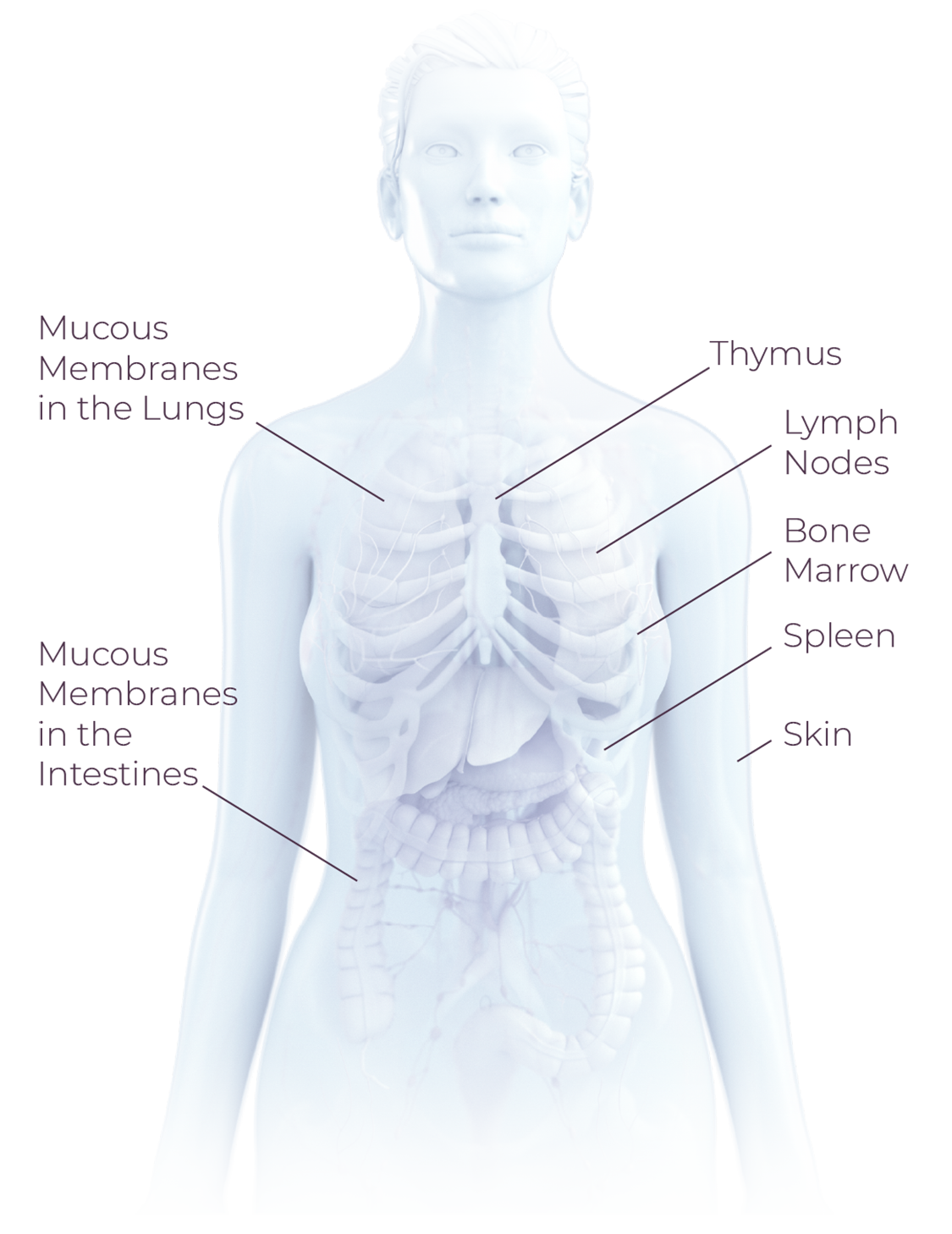
The liver plays an essential role in the digestive system. The stomach and intestine digest what we consume, allowing it to be absorbed into the blood. The liver filters the blood to remove toxins, store nutrients and break down fats. It also plays a role in keeping the sugar levels in the bloodstream in balance.
The Liver’s Unique Immune System
Due to its role in digestion, your liver is constantly exposed to materials foreign to your body. Specialized immune cells in your liver make sure your immune system doesn’t respond too aggressively to things that aren’t harmful, like proteins in the food that we eat.
Liver Tumors are Good at Evading the Immune System
Tumors in the liver are especially good at evading the natural immune system, taking advantage of the cells and processes that normally prevent hyperactive immune responses. Another complication is that, as cancer grows, high pressure develops which can cause tumor blood vessels to collapse, making immunotherapy delivery difficult. Scientists are just starting to understand how the immune system in the liver works and what that means for treating tumors.
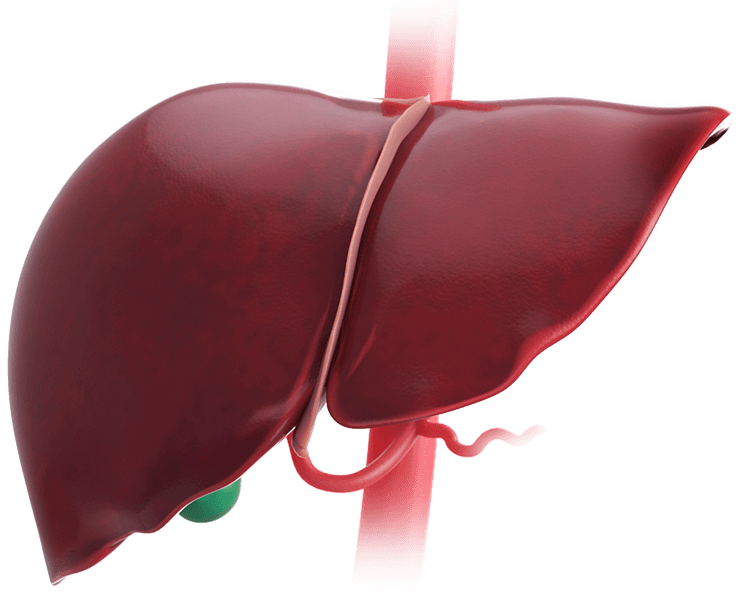
The pancreas creates pancreatic enzymes that help the digestive system break down foods. The pancreas also produces pancreatic hormones that signal to other parts of the digestive system to help regulate blood sugar levels and appetite.
Tumors in the Pancreas are Hard to Treat
As a tumor grows, it starts compressing the blood vessels in the area. In addition, pancreatic tumor tissue is very dense. This can pose a challenge to delivering therapies, as drugs can’t always reach the tumor cells or spread throughout the whole tumor.
Tumors in the pancreas are good at hiding from the immune system. Specialized immune cells, normally present to keep the immune system in balance, are overly present in the tumor environment, helping the tumor hide from the immune system.
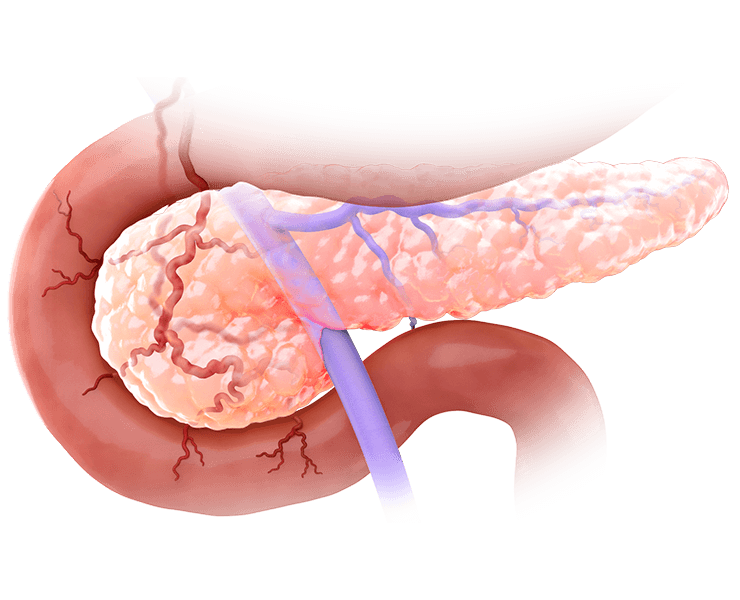
Immunotherapy can be delivered in several ways: to the whole body through systemic intravenous (IV) delivery, locally through needle injection and intravascular regional delivery.
At TriSalus, we are exploring intravascular regional drug delivery for the direct infusion of immunotherapy into a targeted region of tissue. We believe this will increase local therapeutic concentration and reduce systemic side effects.
Intravascular regional drug delivery is performed for tumors that can’t be surgically removed or resected. Therapy is administered through a standard interventional procedure that is minimally invasive, out-patient and typically takes approximately an hour.
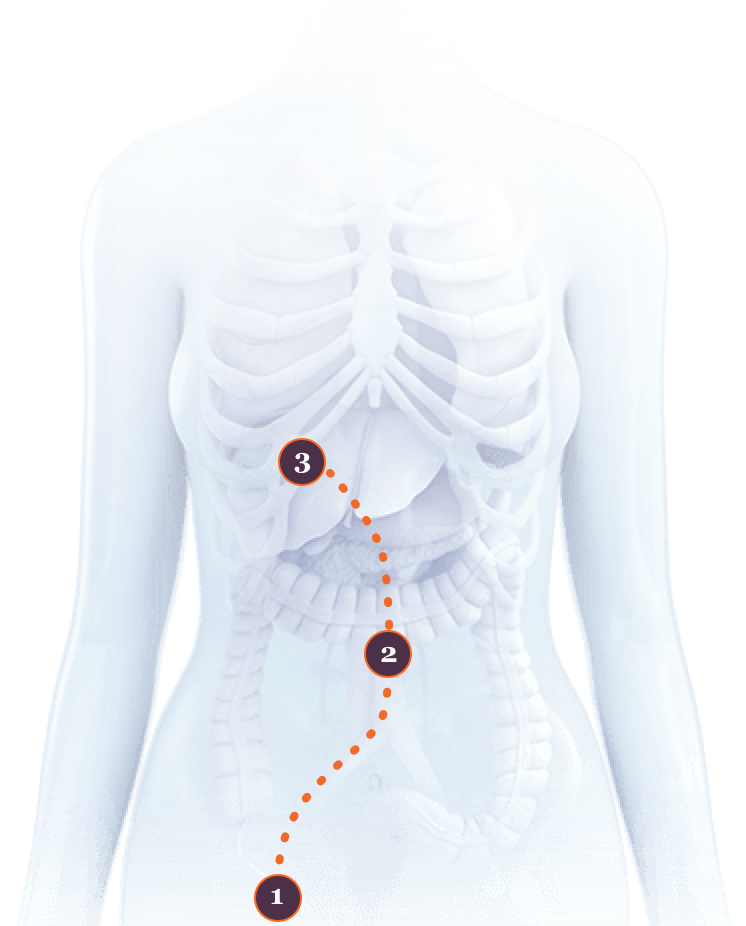
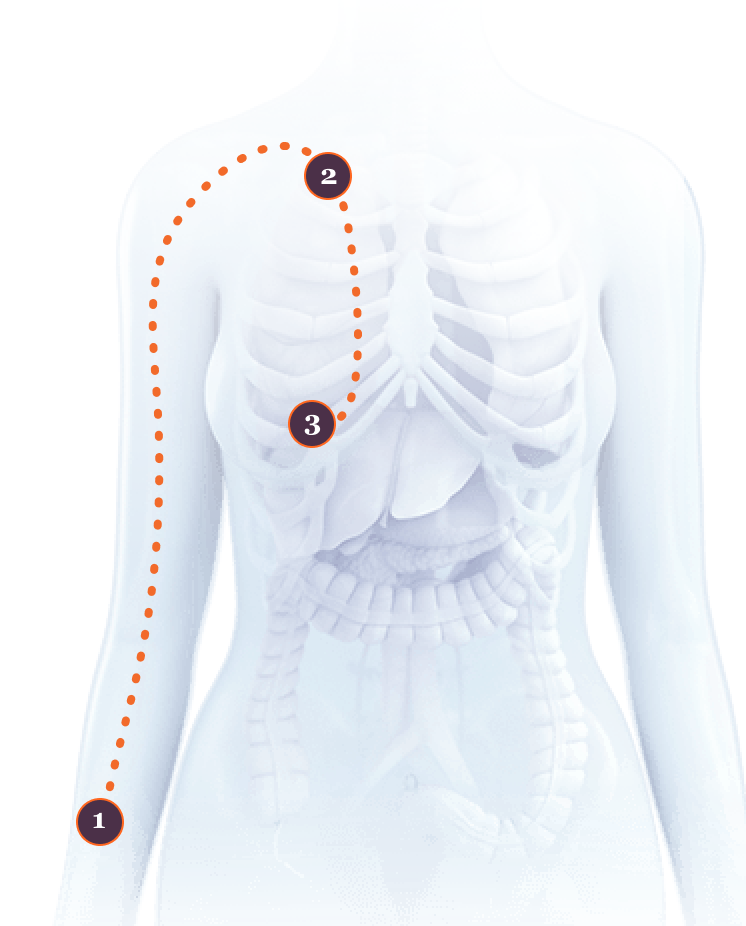
TriSalus is studying ways to activate the immune system by getting a high concentration of the right drugs into liver or pancreas tumor tissue, while also minimizing exposure to non-diseased sites. Our platform approach is based on a scientific understanding of the barriers to treatment in the liver and pancreas. It aims to treat patients with tumors that do not reliably benefit from new advances in immunotherapy.
Our clinical trials are studying the combination of drugs that may help the immune system with a delivery device that may ensure drugs get to where they need to go.
To determine whether you or a loved one may qualify for one of our clinical trials, please see our clinical trials.
We are working on treatments for tumors in the liver and pancreas, including:
Primary liver cancer
Liver metastases
Locally advanced pancreatic ductal adenocarcinoma (PDAC)

CCF’s mission is to find a cure and improve the quality of life for those affected by cholangiocarcinoma (bile duct cancer). Founded in 2006, CCF has become the leading global resource in research, education and public awareness.

GLA is a global patient-led liver health nonprofit that aims to improve the lives of individuals and families impacted by liver disease through promoting innovation, encouraging collaboration and scaling optimal approaches to help eradicate liver diseases.

CUREom is an initiative by the Melanoma Research Foundation (MRF) to increase awareness, education, and research funding for ocular melanoma while improving the lives of people affected by this disease.

ACIS supports families who have ocular melanoma and focuses on research for a cure.

PanCAN is a national organization with the mission to take bold action to improve the lives of everyone impacted by pancreatic cancer by advancing scientific research, building community, sharing knowledge and advocating for patients.
We encourage you to read and evaluate terms of use, privacy, security and other similar policies of the destination site as they may differ from TriSalus’ standards.
TriSalus assumes no responsibility nor does it control, endorse or guarantee any aspect of your use of any third party sites. Additionally, the presence of this link does not imply the third party site’s endorsement of TriSalus or this website.
Thank you for visiting our site.